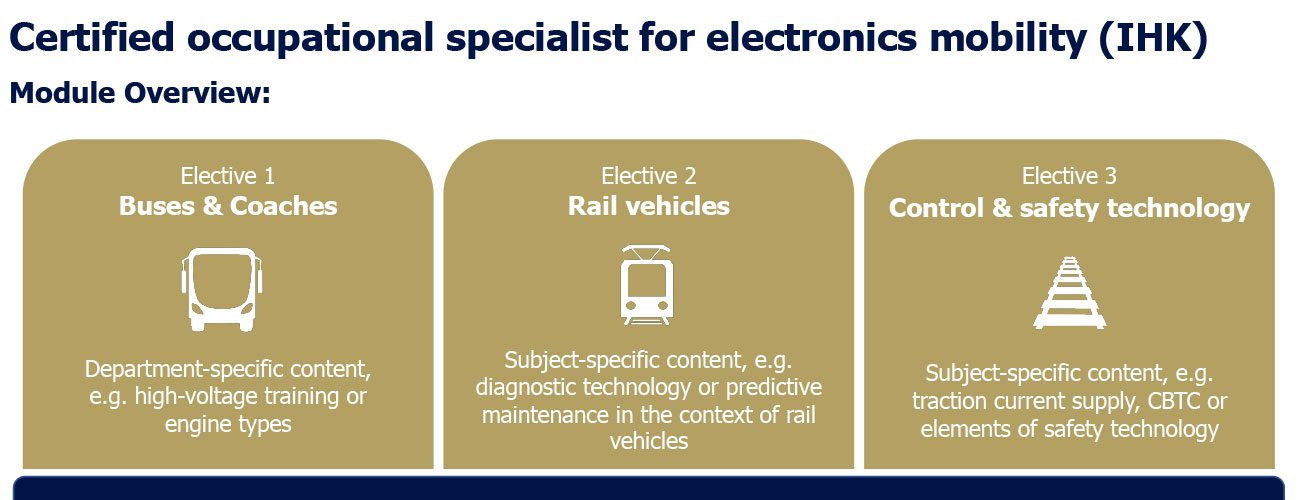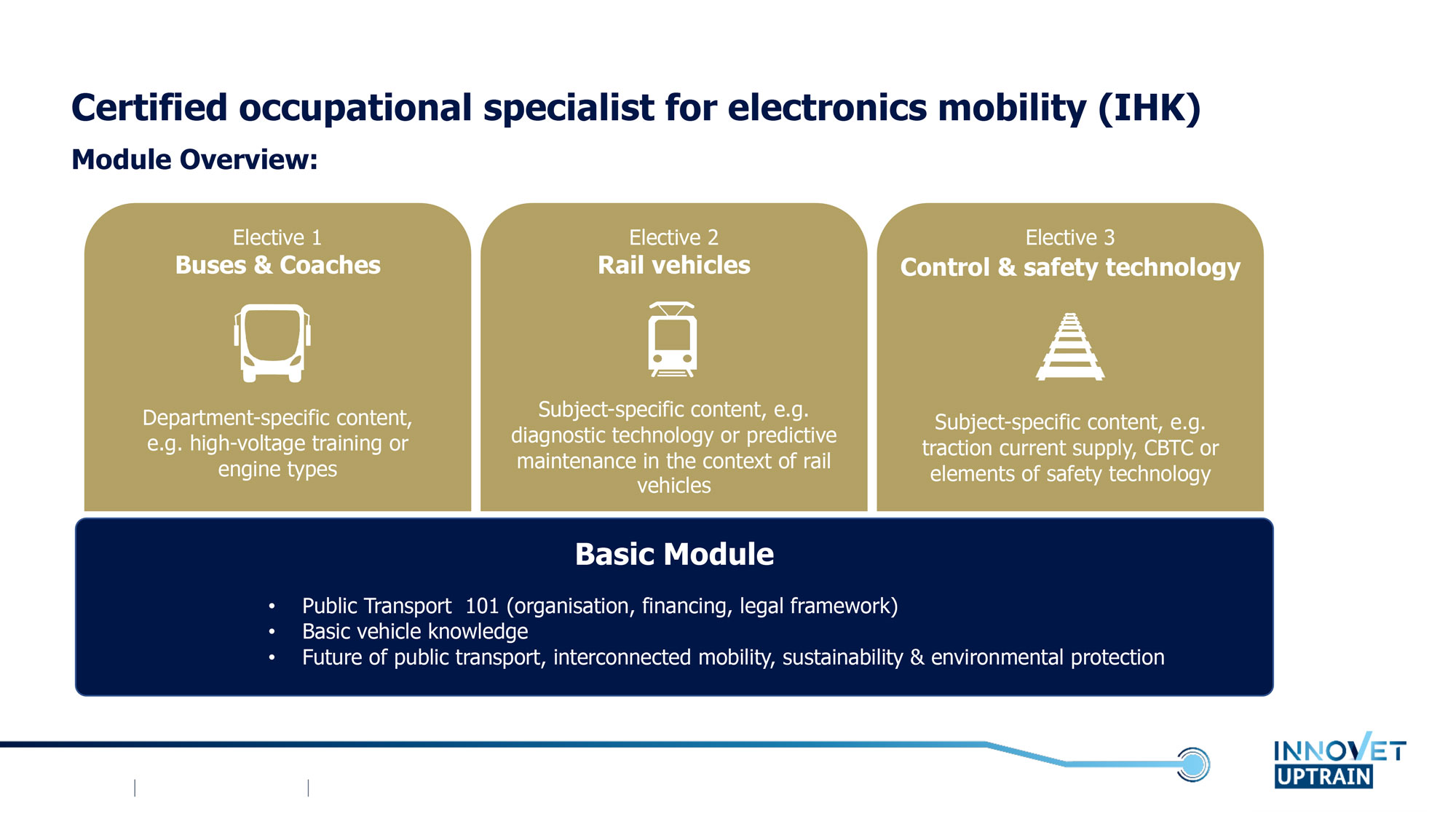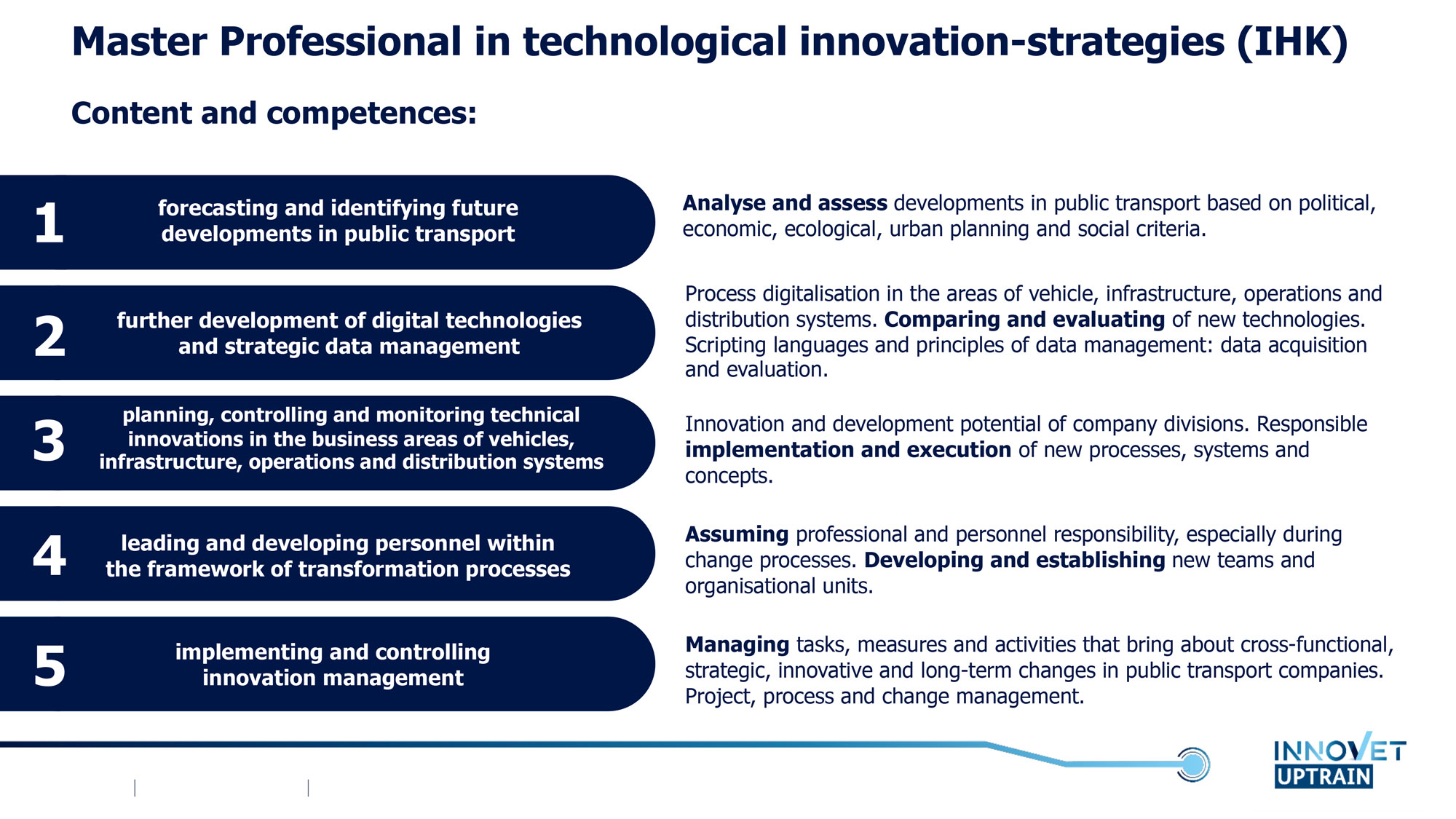What’s the Good Practice about?
UpTrain is intended to contribute to redesigning and increasing the attractiveness and quality of vocational training in the commercial-technical area of the mobility industry. This is to be achieved by developing trial advanced training courses, where trial means reflecting the interest of transportation companies, universities, and the industry. These courses are accompanied by a newly developed digital learning platform. During the project, future-robust and holistic continuing education models for the public transportation industry will be implemented and tested. Bochum University of Applied Sciences will further develop and implement its own learning cooperations in the areas of connected mobility, novel mobility offers, and scenario technology. In addition, new digital learning content for the qualifications will be created according to the blended learning concept and used in the learning cooperations. Bochum University of Applied Sciences is collaborating on the conceptualization of a cross-institutional educational counseling service and is participating in the evaluation of the project process as well as the publication of the project results at conferences.
Why implementing the Good Practice? What are the special features of the Good Practice?
The practice was implemented to improve the quality of vocational education with a special focus on the transfer of knowledge combining three groups: industry, universities, and public transport companies. We aim to develop two new courses that appeal to different levels of higher education: roughly comparable to the levels of the academic bachelor and master degree.
Higher education is very relevant for the future development of our society. The mobility sector, especially public transport, is also very central. Our practice is preferable since it combines the interests of different stakeholders. Representatives of the industry and of the traffic companies are integrated into the planning process to obtain a course that satisfies their needs. Universities contribute their knowledge and skills as well as organize the opportunity that participants can learn together with students to broaden their horizon as well as their knowledge.
During the courses, participants develop various skills, such as technical and practical skills via teaching and visiting the workshops/ companies, digital and management skills, and green skills via information about the mobility sector and its impact on the environment.
What are the challenges in implementing the Good Practice?
What’s the key to success?
As we have many people with an academic background, this posed some challenges in designing a good course for people who come from a different educational background. This is something we know and continuously improve on by reflecting on our experience in the project and feedback from participants.
Criteria for success are good feedback from participants (and other stakeholders), integrating the courses into existing educational constructs (e.g. academic degrees or other vocational training) and allowing the courses to continue after our project finishes. Communication is very important: communicating in the project as well as communicating with all stakeholders, communicating what the courses are about, what they aim to teach and what they do not aim to teach.
We hope that better education for people working in the mobility sector will have a positive effect on the mobility sector and consequentially on the environment!



